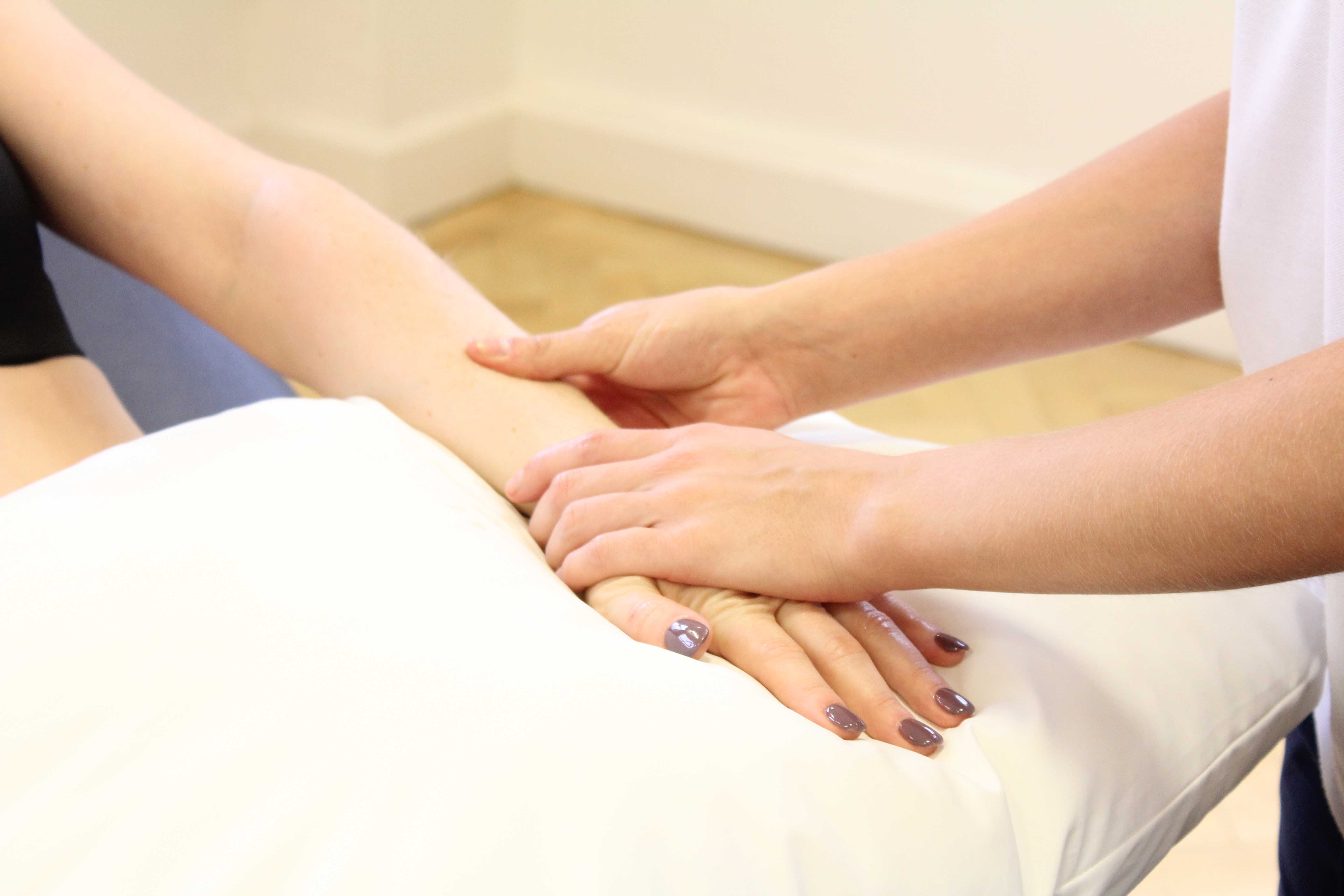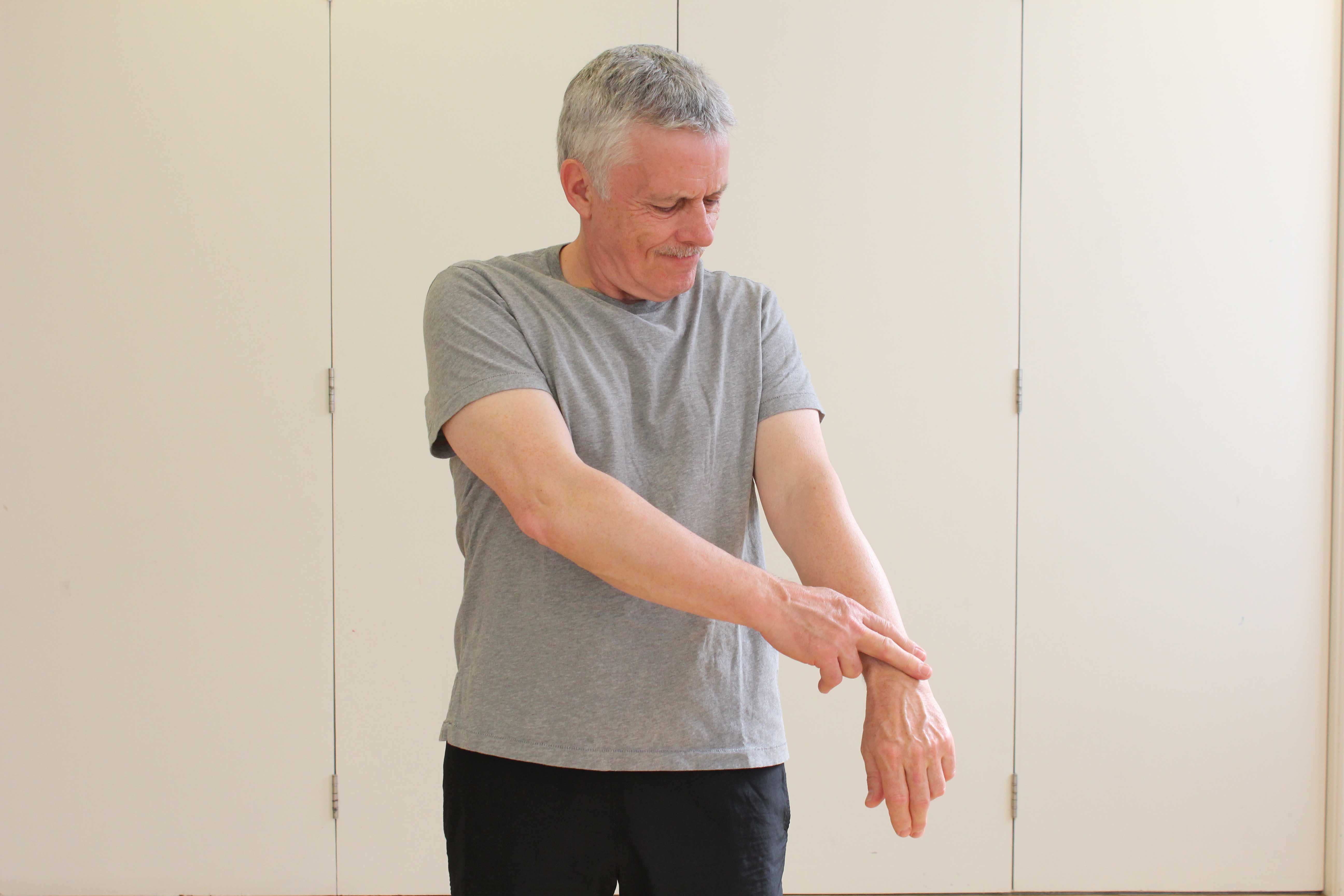What is an injury to the distal radius epiphysis?
An injury to the distal radial epiphysis is an injury to the area of bone growth at the end of the forearm bone in younger athletes. These areas of bone growth are not present in adults. Physiotherapy is an effective way to treat distal radial epiphysis.
 Above: Soft tissue massage to the connective tissues around the dital portion of the radius
Above: Soft tissue massage to the connective tissues around the dital portion of the radiusHow does an injury to the distal radius epiphysis happen?
During childhood and adolescence the end of the forearm bone is separated by the bulk of the forearm bone by a growth plate. This growth plate enables bone growth to occur. However, it is also a weak point in the bone. When forces are repetitively put through the forearm bone and, therefore, through the growth plate, the growth plate may be injured. This commonly occurs in gymnasts due to the repetitive compressive forces that pass through the growth plate when supporting their weight with their arms.
What are the symptoms of an injury to the distal radius epiphysis?
An injury to the distal radial epiphysis causes pain within and just above the back of the wrist joint. The pain is made worse by bending the wrist backwards, such as when your child leans on their hands. The amount of movement at the affected wrist may be reduced compared to the unaffected side. Other symptoms include::
What should I do if my child has an injury to his/her distal radius epiphysis?
If your child has or you suspect your child has an injury to their distal radial epiphysis, you should consult your physiotherapist. In the meantime, your child should avoid activities which aggravate or make their wrist pain worse.
 Above: If you suspect you may have injured your wrist, book in to see one of our physiotherapists.
Above: If you suspect you may have injured your wrist, book in to see one of our physiotherapists.Physiotherapy treatment for an injury to the distal radius epiphysis.
The assistance of a physiotherapist is important in the treatment of an injury to the distal radial epiphysis. Initially, your physiotherapist can assist in diagnosing the injury and the extent of the damage. This may require referral for an X-ray. From this, your physiotherapist will be able to determine an appropriate management plan. This may involve a period of rest and modification of your child’s activities. Following this, your physiotherapist will be able to advise you and your child on the appropriate time for a graduated return to full participation.
Other treatment options include:
What shouldn’t I do if my child has an injury to his/her distal radius epiphysis?
If your child has or you suspect your child has an injury to their distal radial epiphysis you should not ignore the problem. If left untreated their injury could get worse and prolong their recovery. You should not encourage them to exercise through the pain.
Could there be any long-term effects from an injury to the distal radius epiphysis?
An injury to the distal radial epiphysis does not produce any long-term effects, if it is appropriately managed. Recovery usually takes place within a matter of weeks.
To arrange a physiotherapy assessment call Physio.co.uk on 0330 088 7800 or book online.

 0330 088 7800
0330 088 7800

































